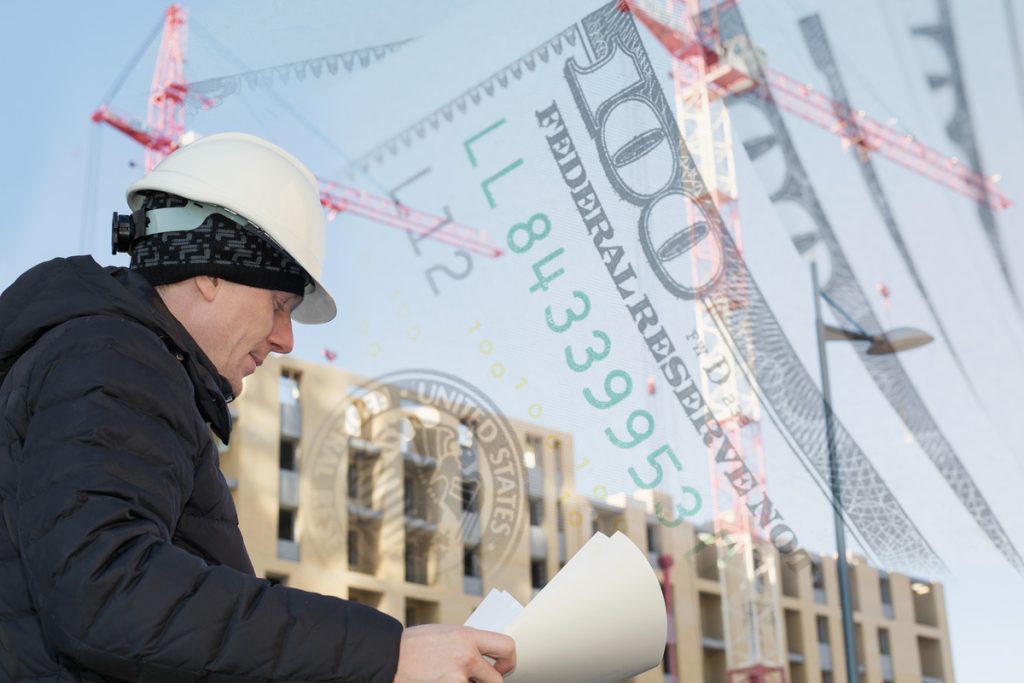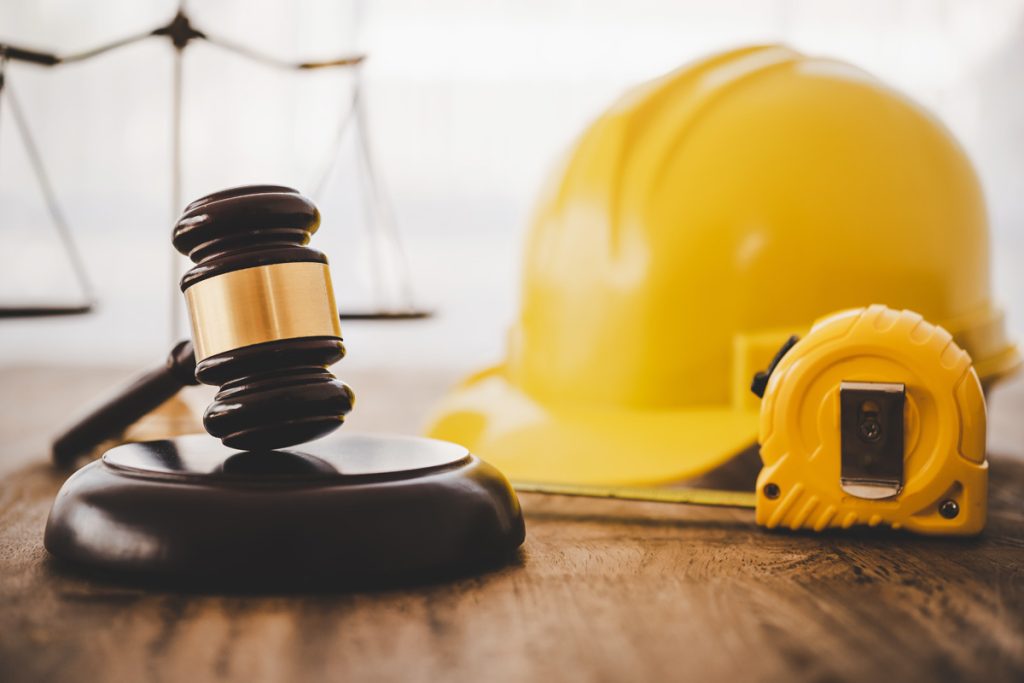Experienced Legal Services for Construction Industry Debt Recovery
Construction projects demand meticulous planning, coordination, and execution. Yet, even the most carefully managed jobs can face payment obstacles that threaten cash flow, project timelines, and profitability. When clients withhold payment or disputes arise over invoices, contractors and suppliers risk delayed payroll, idle equipment, and mounting overhead. For construction businesses, these challenges underscore the importance of having a dedicated construction debt collection attorney by your side. Spiwak & Iezza is a commercial collection law firm focused on debt recovery for the construction industry. Our attorneys possess deep experience in construction law, legal procedures, and enforcement, providing construction businesses with the experienced legal representation necessary to recover unpaid debts efficiently and effectively.

Why Construction Businesses Need a Collection Attorney
Managing layered billing cycles, multi-tier payment chains, and stringent lien laws, while safeguarding against devastating cash-flow interruptions, demands the formal leverage and focused experience of a construction debt collection attorney.
Construction collections stand apart from other industries for several reasons:
- Complex Invoicing Structures – Progress payments, retainage, and change order billing create layered invoices that often confuse clients and trigger disputes.
- Multiple Tiers of Subcontractors and Suppliers – Funds flow through general contractors down to specific subs and material suppliers, increasing the potential for nonpayment at each level.
- State and Federal Lien Statutes – Mechanics’ lien laws vary by state, with strict notice requirements, filing windows, and procedural rules that demand precision.
- Risk of Nonpayment and Cash-Flow Collapse – Unpaid invoices can halt payroll, stall equipment rentals, and force costly line-of-credit draws.
- Benefits of Legal Experience vs. In-House Collections – An attorney brings formal leverage, including demand letters on letterhead, knowledge of prejudgment remedies, and the ability to pursue bond claims that in-house teams often lack.
Types of Commercial Debt in Construction
Construction debt can take many forms:
- Unpaid Progress Payments – The most common debt type, covering completed phases of work.
- Retention/Detention Balances – Funds withheld (often 5–10%) until project closeout or warranty period ends.
- Change Order Disputes – Additional work orders that clients refuse to acknowledge or pay.
- Subcontractor and Supplier Liens – Claims against property when downstream parties go unpaid.
- Equipment Rental and Material Supply Debt – Charges for machinery, tools, and supplies delivered but not paid for.

Impact of Debt on a Construction Business
When invoices go unpaid, the ripple effects can be devastating:
- Cash-Flow Interruption and Liquidity Crunch – Insufficient operating capital leads to stalled purchases of materials and inability to cover payroll.
- Delayed Project Timelines – Without funds to secure subcontractors or order critical supplies, schedules slip and deadlines are missed.
- Increased Borrowing Costs – Turning to lines of credit or bridging loans accrues interest, further eroding profit margins.
- Damage to Business Reputation and Credit Rating – Late payments to suppliers can strain relationships, lead to credit holds, and prevent participation in future bids.
- Employee Layoffs and Lost Growth Opportunities – Severe cash constraints may force layoffs, hinder equipment upgrades, and repel new business expansion.
The Commercial Collection Case Process for Construction
- Pre-Litigation Phase
- Initial Demand Letters & Settlement Negotiations
A formal demand letter lays out the debt, payment terms, and a deadline before legal action. Many debtors respond when faced with credible legal threats. - Mechanics’ Lien or Bond Claim Notices
For property owners, a mechanics’ lien can freeze sale or refinancing; on bonded projects, a bond claim enforces payment against the surety.
- Filing Suit
- Venue, Jurisdiction, and Statute of Limitations
Determining the proper court and complying with filing deadlines (typically 2–4 years) is crucial. - Drafting and Serving a Complaint
The complaint specifies parties, contract terms, amounts due, and legal theories, then is formally served on the debtor.
- Discovery
- Interrogatories, Document Requests, Depositions
Both sides exchange detailed questions, records, and sworn testimony to build their case. - Gathering Payment Records, Contracts, Lien Releases
Clear documentation of work performed, invoices sent, and prior payments is essential to prove entitlement.
- Motions and Hearings
- Summary Judgment Motions
If facts are undisputed, you can ask the court to decide liability without a trial. - Preliminary Injunctions (e.g., Attachment of Assets)
In urgent cases, you may freeze debtor assets or secure liens to preserve funds pending the outcome.
- Trial or Alternative Dispute Resolution
- Bench vs. Jury Trial in Construction Matters
Most collection suits proceed before a judge, though parties may demand a jury in some jurisdictions. - Mediation/Arbitration Under AIA or Custom Contracts
Many construction contracts mandate ADR—efficient venues to negotiate a resolution with a neutral third party.
- Post-Judgment Enforcement
- Writs of Execution, Garnishments, Lien Enforcement
After winning a judgment, you can seize bank accounts, garnish receivables, foreclose on liens, or levy assets. - Settlement and Payment Plan Negotiation
Often, a debtor will agree to structured payments to avoid further legal costs.
Legal Process and Strategy for Construction Debt Collection
- Tailoring Strategy to Project Size and Contract Type
A multimillion-dollar general contract requires a different approach than a small subcontract: choose bonds vs. liens accordingly. - Mechanics’ Lien vs. Bond Claim: When to Use Each
— Lien: Direct claim against the property, ideal for private projects.
— Bond: Surety-backed claim, essential on public or bonded jobs. - Prompt Payment Statutes and Statutory Deadlines
Many states require owners or governing agencies to pay contractors within set periods (e.g., 30 days), providing triggers for interest and penalties. - Leveraging Asset Freezes and Prejudgment Remedies
Tools like writs of attachment or garnishment deter debtors from asset dissipation. - Negotiation Tactics Backed by Credible Litigation Threats
Timely and aggressive follow-up, accompanied by clear legal consequences, often compels payment without trial. - Coordinating with Sureties, General Contractors, and Owners
A unified front—alerting sureties to lien filings, and keeping general contractors informed—enhances leverage.
Challenges in Construction Debt Collection
- Jurisdictional Variations in Lien Law – Notice requirements, filing periods, and lien waivers differ dramatically by state.
- Complex Multiparty Payment Chains – Funds move through the owner, GC, subs, and suppliers—pinpointing responsible parties can be time-consuming.
- Bankruptcy and Insolvency of Debtors – A debtor’s bankruptcy stay halts collection and reorders creditor priority.
- Counterclaims and Set-Off Defenses – Debtors may allege defective work, delays, or liens on your payments to counterbalance your claim.
- Delays from Change Orders and Work Disputes – Clients often withhold payment pending resolution of disputed extra work or construction defects.
Reasons You Need a Commercial Debt Collection Attorney
- Protect Your Lien Rights and Bond Claims – Protect your property interest by filing precise, timely mechanics’ liens or bond actions.
- Navigate Multifaceted Construction Contracts – Our team deciphers AIA, EJCDC, and custom forms to leverage every payment remedy available.
- Meet Strict Statutory Notice Requirements – Missing a lien notice deadline—even by a day—can forfeit your right to claim.
- Protect Against Counterclaims and Exposure – We craft complaints that preempt allegations of defective work or delay damages.
- Secure Faster Resolution and Cash Recovery – Backed by credible litigation threats and enforcement tools, our goal is to resolve debts as efficiently as possible.
- Peace of Mind to Focus on Core Business – Let Spiwak & Iezza handle the legal complexities while you concentrate on bids, builds, and business growth.

Common Legal Questions & Answers for Construction Collections
What is the process of commercial debt collection for construction?
From demand letters and lien or bond claims, through filing suit, discovery, motions, ADR or trial, to judgment enforcement—each step is designed to secure payment and protect your rights.
How do mechanics’ liens differ from bond claims?
A mechanics’ lien attaches to real property; a bond claim targets the project’s surety bond. Public projects generally require bond claims, while private jobs allow lien filings.
What types of debt can a construction collection attorney help me recover?
Progress payments, retainage, change order disputes, equipment and material charges, and even unpaid subcontractor fees through bond claims.
How long will it take to collect an outstanding construction debt?
Pre-litigation settlements could resolve within 30–60 days. Litigation may span 6–18 months or longer, with enforcement varying by court backlog and debtor cooperation.
Can I file a lien if I’m a subcontractor or material supplier?
Yes—subcontractors and suppliers enjoy lien rights, but must serve preliminary notices and file within shorter windows (often 90 days post-completion).
What if my debtor files for bankruptcy?
The automatic stay halts collection, but construction liens may survive bankruptcy in many states. An experienced debt collection attorney will file claims in the bankruptcy case to preserve your priority.
What are prompt payment statutes and how do they aid collections?
Prompt payment statutes require owners and contractors to remit progress payments within a defined period (often 30 days) and may impose interest or penalties for late payment, giving you statutory leverage to accelerate cash flow and recover additional damages.
Can I recover interest and attorney’s fees on overdue construction debts?
Yes—many contracts and state statutes allow you to charge pre- and post-judgment interest on unpaid invoices and to recover reasonable attorney’s fees, increasing your net recovery.
What should I include in my initial demand letter?
Your demand letter should clearly state the amount due, reference the contract terms, itemize unpaid work or materials, set a firm payment deadline, and outline the legal remedies you’ll pursue if payment isn’t made.
How do I enforce a collection judgment in construction?
After obtaining judgment, you can enforce it through writs of execution, bank garnishments, property liens, or sheriff levies, and coordinate with local authorities to seize or sell assets to satisfy the debt.

The True Cost of Unpaid Invoices
Many businesses underestimate the financial damage caused by unpaid accounts. Consider:
- Outstanding invoices restrict cash flow needed for growth.
- Collection delays reduce the chances of full recovery.
- Chasing debts internally wastes valuable time and resources.
Studies show (according to the Commercial Collection Agencies of America):
- Debts under 90 days overdue are 80% collectible.
- After 6 months, collectability drops to 50%.
- After one year, it falls below 25%.
Spiwak and Iezza move quickly and strategically to pursue full recovery while protecting your business interests.

Get Legal Advice for your Construction Collections Issue
When construction debt collection issues arise, time is often critical due to the numerous statutory deadlines that govern mechanics’ lien rights, bond claims, and other construction-specific remedies. Spiwak & Iezza provides immediate consultation and emergency response services to ensure that no valuable collection rights are lost due to procedural delays or missed deadlines.
Commitment to Construction Industry Success
Spiwak & Iezza understands the unique challenges facing construction industry businesses and provides collection services designed to support industry success and growth.
Schedule a Risk-Free Consultation
Our comprehensive case evaluation process includes a thorough analysis of all available collection remedies, assessment of lien and bond claim rights, and development of strategic collection plans tailored to each client’s specific circumstances and objectives. We provide honest assessments of collection prospects and realistic timelines for resolution.
Don’t let unpaid construction debt threaten your business success.
Contact Spiwak & Iezza today for experienced construction debt collection representation that protects your rights, recovers your money, and preserves your business relationships. Our experience in construction law and commitment to thorough representation provide the professional support your construction business needs to maintain financial stability and continue growing.
Contact Spiwak and Iezza Today
Visit our contact page to schedule a call with an experienced construction collection attorney who understands your industry and can provide the professional and knowledgeable legal assistance your business deserves.
***Disclaimer: This page has been prepared by Spiwak & Iezza, LLP for informational and educational purposes only. The content is intended to provide a general overview of the law and does not constitute specific legal advice. Viewing this page or using this site does not establish an attorney-client relationship with Spiwak & Iezza, LLP or any of its members. Additionally, because laws are subject to frequent changes, some of the information provided may no longer be current or applicable.


